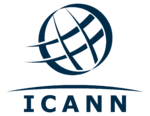ICANN 71: Difference between revisions
Appearance
| Line 19: | Line 19: | ||
===Plenaries=== | ===Plenaries=== | ||
====Multistakeholder Model Evolution==== | ====Multistakeholder Model Evolution==== | ||
The | The discussion mainly focused on: | ||
* The pros and cons of encouraging or permitting adversarial interactions <br/> | * The pros and cons of encouraging or permitting adversarial interactions <br/> | ||
::[[Ron Andruff]] proffered, "The [[Consensus Policy|consensus]] model needs to be revised from meeting the highest standard: Full Consensus, to the next level: General Consensus with dissenting opinions. That change would better inform the debates." | ::[[Ron Andruff]] proffered, "The [[Consensus Policy|consensus]] model needs to be revised from meeting the highest standard: Full Consensus, to the next level: General Consensus with dissenting opinions. That change would better inform the debates." | ||
| Line 28: | Line 28: | ||
* How ICANN can better involve the Global South <br/> | * How ICANN can better involve the Global South <br/> | ||
:: [[Claire Craig]] explained that ICANN must work with governments in developing nations, as they are the key access points. There are few if any capacity-building programs there, and the ICANN communities are too small; it's about striving toward equity, not equality. [[Jovan Kurbalija]] agreed, suggesting that the model should 1) embrace the public good aspect of ICANN (it's not just commercial); 2) that the pandemic made governments much stronger as it did tech; 3) ICANN should work with [[IGF]] to get more involved with politics because it’s trying to exist too far from the political center; and 4) ICANN needs to educate the general public to gain prominence via boundary spanners. | :: [[Claire Craig]] explained that ICANN must work with governments in developing nations, as they are the key access points. There are few if any capacity-building programs there, and the ICANN communities are too small; it's about striving toward equity, not equality. [[Jovan Kurbalija]] agreed, suggesting that the model should 1) embrace the public good aspect of ICANN (it's not just commercial); 2) that the pandemic made governments much stronger as it did tech; 3) ICANN should work with [[IGF]] to get more involved with politics because it’s trying to exist too far from the political center; and 4) ICANN needs to educate the general public to gain prominence via boundary spanners. | ||
====Impact of Regulatory Developments==== | ====Impact of Regulatory Developments==== | ||
Revision as of 16:12, 21 June 2021
 | |
| Dates: | June 14-17, 2021 |
| Location: | The Hague, NL |
| Venue: | Virtual |
| Website: | https://71.schedule.icann.org/ |
ICANN 71 was a Policy Forum that was held from June 14 to June 17, 2021, virtually due to the Covid-19 pandemic. It was supposed to have taken place in The Hague, the Netherlands.
Meetings[edit | edit source]
Plenaries[edit | edit source]
Multistakeholder Model Evolution[edit | edit source]
The discussion mainly focused on:
- The pros and cons of encouraging or permitting adversarial interactions
- Ron Andruff proffered, "The consensus model needs to be revised from meeting the highest standard: Full Consensus, to the next level: General Consensus with dissenting opinions. That change would better inform the debates."
- Whether ICANN's role in Internet Governance should be streamlined
- Jorge Cancio said, "We stay in the weeds now" (as compared with work as recent as 2008) and argued that “ICANN should stay at the principle level, lean, and future proof.”
- The backlog of unimplemented policies, some of which are now out-of-date or conflict with current work
- Mason Cole worried "How big a danger to the model is unfinished work? The community has expectations regarding completing work...the SSR1 recommendations are nearly a decade old...This is like dragging weight around unnecessarily." Likewise, James Bladel said, "There is too much emphasis on process and not enough on relevance."
- How ICANN can better involve the Global South
- Claire Craig explained that ICANN must work with governments in developing nations, as they are the key access points. There are few if any capacity-building programs there, and the ICANN communities are too small; it's about striving toward equity, not equality. Jovan Kurbalija agreed, suggesting that the model should 1) embrace the public good aspect of ICANN (it's not just commercial); 2) that the pandemic made governments much stronger as it did tech; 3) ICANN should work with IGF to get more involved with politics because it’s trying to exist too far from the political center; and 4) ICANN needs to educate the general public to gain prominence via boundary spanners.
Impact of Regulatory Developments[edit | edit source]
Reputation Block Lists[edit | edit source]
Policy[edit | edit source]
GNSO[edit | edit source]
- GNSO: EPDP Phase 2A Update
- Two outstanding issues:
- legal vs. natural
- feasibility of unique contacts/anonymized emails
Contracted[edit | edit source]
RrSG[edit | edit source]
RySG[edit | edit source]
Non-Contracted[edit | edit source]
BC[edit | edit source]
ISPCPC[edit | edit source]
IPC[edit | edit source]
NCSG[edit | edit source]
ccNSO[edit | edit source]
ASO[edit | edit source]
Did not meet at ICANN 71.
Advice[edit | edit source]
GAC[edit | edit source]
ALAC[edit | edit source]
The key issues discussed in the ALAC meeting were: the prospects for SSAD; the U.S. Patent and Trademark Office v. Booking.com decision, the debate over whether domain names should be trademarked, and fears over the privatization of generic nouns; the potential policy implications of Verisign's US Patent 10,979,384; and questions over why ICANN's GDPR response is talking so long: is it due to technical or policy complications?
